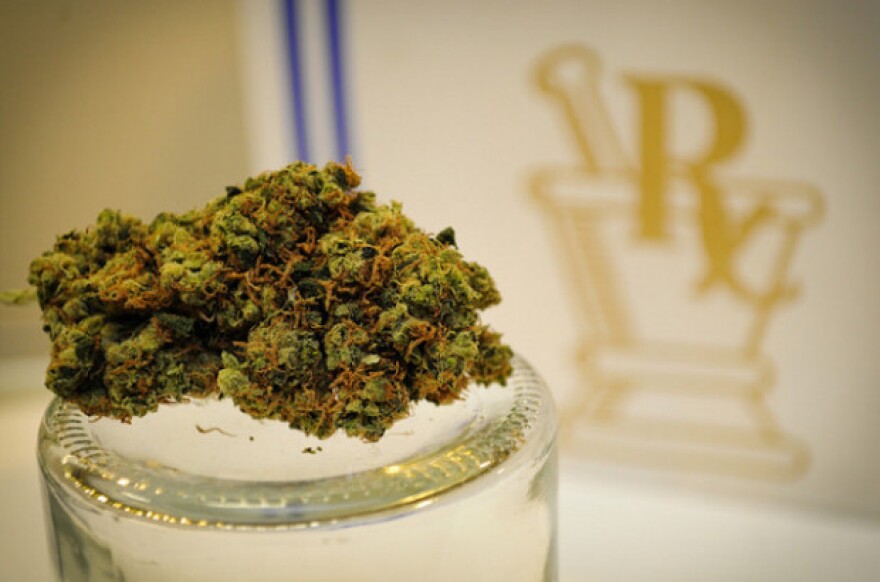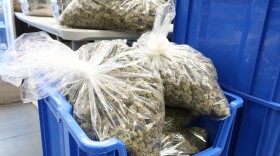As lawmakers rushed to meet last Thursday’s deadline to have bills read in their house of origin, over 30 medical marijuana-related bills advanced from the House and Senate floors.
The focus of the bills ranged from increased regulations on marijuana businesses, altering the licensure process, bolstering the OMMA and changing the structure of where marijuana revenue dollars go.
Here are some of the bills that advanced from their houses of origin this week:
Marijuana business requirements:
- HB2025– Would require all marijuana businesses and facilities to display their OMMA-issued license in a conspicuous place.
- SB1779- Would require signage at the property entrance of a business that lists the business license number and a telephone number.
- HB3827– Would require all medical marijuana commercial grower licensees with an outdoor production facility to register with the Oklahoma Department of Agriculture, Food and Forestry as an environmentally sensitive crop owner. Registration would provide notice to nearby pesticide applicators, with the goal of minimizing pesticide drift.
- HB4056- Would require a private laboratory under contract with OMMA to provide a list of recommendations for marijuana testing equipment, as well as testing standards and operating procedures. Beginning in June 2024, laboratories renewing their licenses and new laboratories looking to obtain a license will have to be in compliance with the determined standards.
- HB3752– Would make it illegal for a grow property owner to abandon the property without first restoring the land to its original condition.
- SB1697- Would require marijuana growers to acquire a bond before receiving their license or license renewal for the purpose of land reclamation. Every applicant would have to file a bond of at least $25,000 with the OMMA. The OMMA may request a higher amount if reclaiming the land after the grow facility vacates is expected to be more difficult.
- SB1693- Would require commercial grower and processor applicants and licensees to obtain a water use permit from the Oklahoma Water Resources Board if they use water from groundwater or an Oklahoma stream, as well as obtaining an official statement of permission from the political subdivision that provides the water if using rural or municipal water.
- HB3929- Would require the OMMA to develop standards for process validation. Process validation would be voluntary and would require licensees to use the seed-to-sale system, meet testing requirements and pay an annual fee of $2,500.
Packaging and selling requirements:
- HB4287– Requires processors and growers to sell marijuana only in pre-packaged form, in package sizes ranging from an eighth of an ounce to an ounce. Displaying marijuana and smelling would still be allowed, but “deli-style” sales would no longer be allowed.
- HB4288- Would require all perishable marijuana products to be labeled with a maximum six-month expiration date or use-by date if the product hasn’t gone through stability testing. It also requires the OMMA to establish stability testing standards by Nov. 1, 2022.
- HB3019- Would require purchased marijuana leaving a dispensary to be contained in an exit package, which is described as an opaque bag. It would also require marijuana containers to be printed with “For use by licensed medical marijuana patients only,” and “Keep out of reach of children,” on the container. The container may be clear.
- SB1219- Would require at least 50% of containers of edible medical marijuana products to be clear and the product visible through the clear portion. It would also require the letters “THC” to be pressed or printed onto solid or semisolid products.
Bolstering OMMA and enforcement:
- HB3208– Would issue a moratorium on business licensing for either two years or until the OMMA can complete all pending license reviews, inspections and investigations.
- HB3971– Would implement a secret shopper program in which employees from the OMMA would purchase marijuana from dispensaries and send it to labs to test for contaminants and potency.
- HB3813– Would designate OMMA inspectors as law enforcement and allow them to aid and assist in enforcement and prosecutions.
- HB4411– Would mandate the OMMA to administer a minimum of one inspection per year for marijuana businesses and licensed facilities.
- HB4055– Would require public utility companies to submit monthly reports to the OMMA of how much water, electricity and/or other public utilities are being used by commercial growers.
- SB1688- Would allow property possessed, used or available for use in any unauthorized cultivation, distribution, processing, sale or transfer of marijuana to be subject to asset forfeiture.
- SB1543- Would remove the OMMA as a division of the Oklahoma State Department of Health. The OMMA would instead function as its own distinct entity.
- SB1367- Would raise the penalty for marijuana patients to share or sell marijuana to unauthorized persons. For the first offense, the fine is $400 (up from $200). For the second offense, the fine is $1,000 (up from $500) and the offender will have their license permanently revoked.
- SB1704- Would raise the penalty for marijuana businesses or employees to share or sell marijuana to unauthorized persons. For the first violation, the fee is $5,000 (up from $1,000). For the second violation, the fee is $15,000 (up from $5,000) and the offender is subject to their license being revoked.
Restructuring the licensure process:
- HB2179- Would increase the annual license fee for growers based on the size of their facility. All growers would pay $2,500 as a base. Indoor facilities and greenhouses or light deprivation facilities over 1,667 square feet would then pay an additional $1.50 per square foot of their facility. Outdoor grows over 83,334 square feet would pay an additional $0.03 per square foot.
- HB3634– Would create a wholesaler tier of licensing to deal with sales and distribution channels of marijuana.
- HB3734– Would require new marijuana businesses to purchase temporary conditional licenses before being issued an annual business license. To obtain a temporary license, business owners would need to disclose all relevant financial information, all sources for utility usage and evidence of insurance.
- SB1755- Would allow applicants to obtain a conditional license if they haven’t obtained all necessary permits from their municipality and completed necessary inspections. A conditional license does not allow the applicant to operate as a licensed business.
- HB3891– Would add grow and processing facilities to the list of new businesses that must be at least 1,000 feet from a school property line, including pre-kindergarten and vocational technology schools, as well as property used for school athletics like stadiums and ballparks.
- SB1726- Would add commercial grow facilities to the list of new marijuana businesses that must establish themselves at least 1,000 from a school. It would also add technology centers primarily used for classroom instruction to the definition of “school.”
- SB1841- Would allow the OMMA to deny licensure applications, suspend or revoke business licenses due to any violation of state law.
Restructuring marijuana tax revenue:
- HB3530- Would require the first $5 million of sales tax from marijuana to be allocated to the County Sheriff Public Safety Grant Revolving Fund, which would be used for law enforcement relating to marijuana.
- SB1848- Would change marijuana sales tax apportionments. The first $65 million would be divided as follows: 64% (up from 59.23%) goes to the State Public Common School Building Equalization Fund, 30% (down from 34.62%) goes to the OMMA and the 6.15% allocation to the OSDH for drug and alcohol rehabilitation is being replaced by a newly created Drug and Alcohol Rehabilitation Fund and appropriated at 6%.
- SB1302- Would add marijuana tax to the list of taxes for which the Tax Commission can file an assessment.







